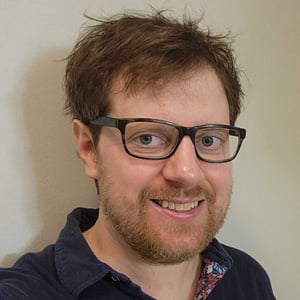Some readers may find content in this article distressing. For a list of crisis lines and other support resources across Canada, please visit: https://www.canada.ca/en/public-health/services/mental-health-services/mental-health-get-help.html.
The Indigenous Anglican church is beginning work on mental health ministries amid a national epidemic of suicides and overdoses in Indigenous communities, Archdeacon Rosalyn Elm, the church’s Indigenous ministries coordinator, told the Council of General Synod (CoGS) in November.
The programs, which are still in the planning and research stages, are aimed at bolstering mental health ministries in the North. The first area of concern, Elm said, was programming for Indigenous men, who she told the Anglican Journal were particularly underserved by mental health services in northern Canada—but were also coming together to help each other. Both realities became evident for Indigenous Ministries, she said, when they held listening circles for survivors of abuse by Ralph Rowe, a former Anglican priest and Scout leader convicted of 75 sexual crimes against children in northern Ontario and Manitoba.
First Nations leaders and mental health professionals in the documentary Survivors Rowe estimate Rowe abused as many as 500 children in Indigenous communities.The church is looking for opportunities to create its own ministry resources and to partner with existing programs offering care to Indigenous men, Elm said. “We are primarily doing the research and proposal-making, whereas the men themselves are going to be the ones that are going to lead the way in how they want to set up their healing practices,” she said.
The Anglican Council of Indigenous Peoples (ACIP) is also creating a youth program for peer counselling called The Fire Talks. This program—still taking shape as of Elm’s address to CoGS, with estimates of its duration ranging from seven months to a year—will result in participants getting a certification for peer counselling. “We’re trying to combat the difficulties that our youth face today on a ground level,” Elm said.
Statistics Canada lists men and boys; First Nations and Métis youth; and people living in Inuit regions in Canada as among the groups with the most elevated suicide rates. According to a 2018 study from the Canadian Federation of Medical Students, the suicide rate among Indigenous youth is five to six times that of the general Canadian population.
Indigenous Ministries is working with partners to determine how it can help youth to support each other spiritually and mentally, Elm said. The Primate’s World Relief and Development Fund, she said, is one of the partners conducting initial research.
Also at CoGS, National Indigenous Archbishop Chris Harper announced he would slow down his schedule of travel in 2025 following two years of extensive visits to church communities across the country.
Harper said ACIP had opened its doors for bishops from the non-Indigenous church to join them for any meeting. “You don’t need an invitation, because you are family,” he said. “And my prayer is that one day it’ll be reciprocated so that I don’t have to ask permission to come to the dioceses to talk to my own people.” In the Anglican church, it is typical for bishops to await an invitation before visiting another bishop’s diocese.
Harper described his travels across the country as a profound experience of connecting with Anglicans and sharing the message of the Indigenous church across the country. But he also said in some places, he had received insensitive or inaccurate comments from non-Indigenous Anglicans and clergy. As examples, he described one congregation asking him to “bring his feathers and his drum and come sing and dance” for them, and others where leaders told him they didn’t think they had any Indigenous people in their dioceses. His hope, he said, was that ACIP’s gesture of openness to the bishops would continue the work of bridge-building he had begun in his travels across the country.
“I’ve told people that it’s easy to find an angry Indigenous person who will want to berate you, who will want to come and tear you down and punish you for the pain that they feel inside. But it’s hard to find an Indigenous person who’s going to want to come and invite you to walk with them and to find a road appealing in peace for us all to walk together,” he said.
The latter is the approach he hopes he and the other Indigenous church leaders can foster going forward, he added, because it is the only way to build understanding of the past harms and future opportunities between both parties.“What we need to do is start being able to relate with each other. And the only way to do that is to stay at the table and dialogue, but dialogue with respect.”
At the same session of CoGS, Canon Murray Still, CoGS representative from ACIP, said he and other Indigenous church leaders were working on planning the next Sacred Circle, tentatively scheduled for early May 2025.






